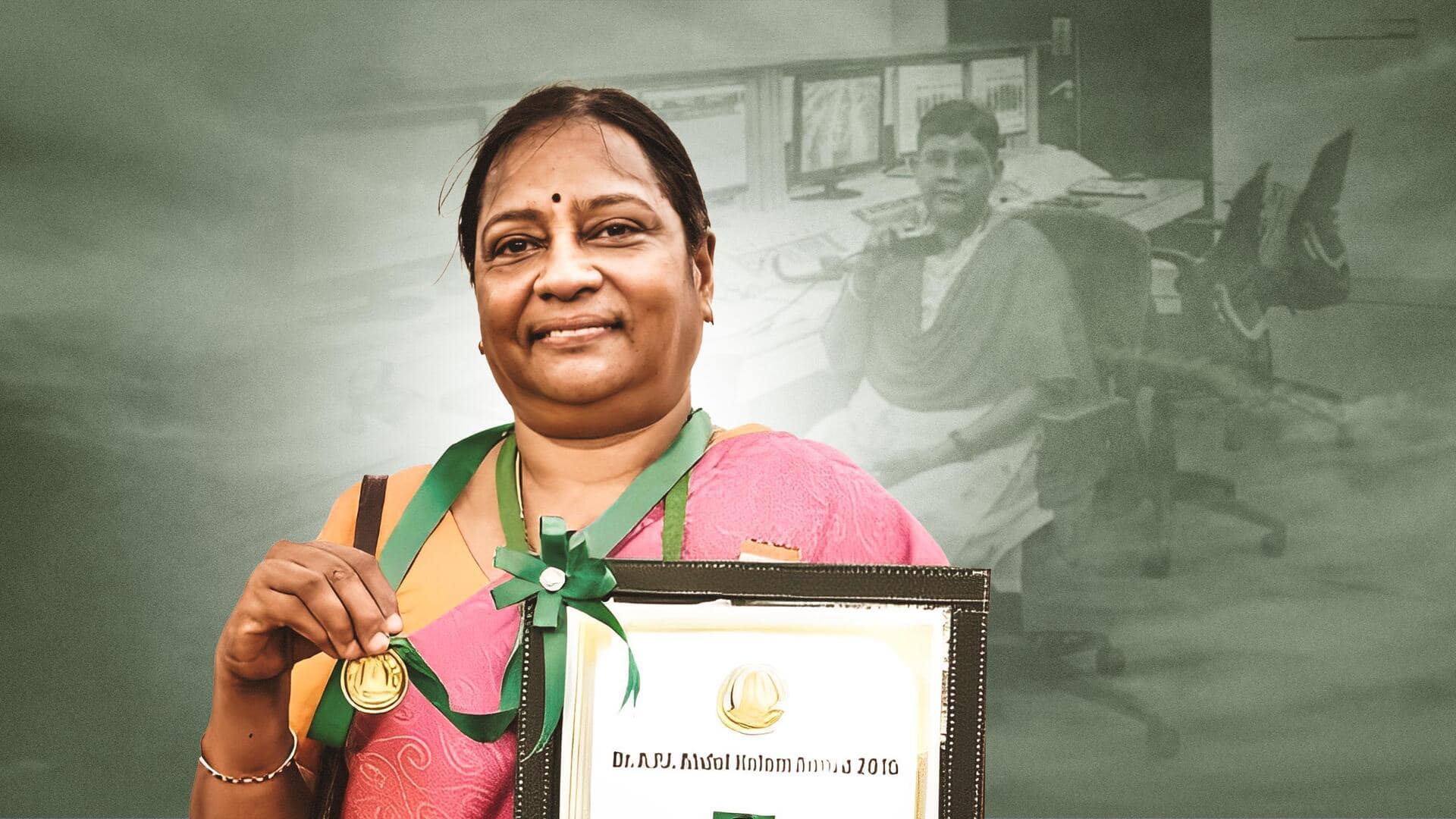
ISRO scientist, voice behind launch countdowns, dies of cardiac arrest
What's the story
N Valarmathi, an Indian Space Research Organisation (ISRO) scientist and the voice behind the space agency's rocket launch countdowns, died due to cardiac arrest on Saturday in Chennai, reported WION. She was 64. Reportedly, Valarmathi's last countdown came when the Polar Satellite Launch Vehicle (PSLV-C56), carrying Singapore's DS-SAR and six co-passenger satellites, lifted off from Sriharikota's Satish Dhawan Space Centre on July 30.
Details
Former ISRO director reacts to Valarmathi's death
Reacting to the sudden death of Valarmathi, former ISRO Director Dr. PV Venkitakrishnan took to X (formerly Twitter) and conveyed his heartfelt condolences. "The voice of Valarmathi Madam will not be there for the countdowns of future missions of ISRO from Sriharikotta (sic)," he wrote. "An unexpected demise. Feel so sad. Pranams!" he added.
Twitter Post
Dr. Venkitakrishnan's post on X
The voice of Valarmathi Madam will not be there for the countdowns of future missions of ISRO from Sriharikotta. Chandrayan 3 was her final countdown announcement. An unexpected demise . Feel so sad.Pranams! pic.twitter.com/T9cMQkLU6J
— Dr. P V Venkitakrishnan (@DrPVVenkitakri1) September 3, 2023
More details
All you need to know about Valarmathi
Valarmathi was born on July 31, 1959, and started her journey with ISRO in 1984, per Hindustan Times. Furthermore, she was the project director of Radar Imaging Satellite 1 (RISAT-1), the first indigenously built Radar Imaging Satellite (RIS) and India's second such satellite. Notably, in August 2015, Valarmathi also became the first recipient of the Tamil Nadu government's highly prestigious Abdul Kalam Award.
Know more
ISRO's recent success in space frontier
Meanwhile, ISRO has been making big strides in the field of space with the recent successes of missions like the Aditya-L1 and Chandrayaan-3. While the Aditya-L1 is India's maiden space-based solar observatory, ISRO created history with the Chandrayaan-3 after it successfully soft-landed on the south pole of the Moon and became the first country in the world to do so on August 23.
further information
Chandrayaan-3's Pragyan rover completes walk on lunar surface
Eleven days after Chandrayaan-3's lunar touchdown, ISRO announced the Pragyan rover completed all its tasks on the Moon and entered sleep mode on Saturday. Scientists are analyzing the data gathered by the rover as it searched for various elements, including signs of frozen water. On September 22, the Vikram lander and the rover are likely to wake up again for another set of tasks.